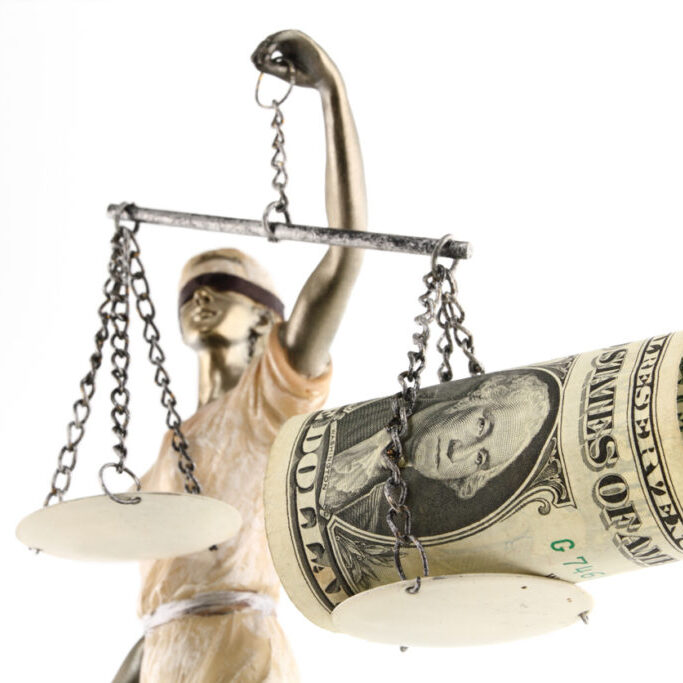Insights < BACK TO ALL INSIGHTS
Supreme Court Finds That CFPB Director Can Be Removed By President, But Allows Agency To Continue To Operate
Supreme Court Finds That CFPB Director Can Be Removed By President, But Allows Agency To Continue To Operate
By: Ifrah Law
On June 29, 2020, the Supreme Court issued a ruling that expanded the President’s authority to remove a director of the Consumer Financial Protection Bureau (CFPB), while simultaneously finding that the Bureau itself could continue to exist an operate.
In Seila Law LLC v. CFPB, both the law firm Seila Law—which was under investigation by the CFPB for charging consumers with improper fees in association with debt collection services—and the Trump administration both challenged the CFPB’s director-removal provision, and Selia Law challenged the CFPB’s overall constitutionality. Prior to the Seila Law decision, the statute creating the CFPB limited the President’s power to remove the CFPB’s Director to doing so only in the case of “inefficiency, neglect of duty, or malfeasance in office” by the Director. Although the Supreme Court ruled that the agency’s structure was unconstitutional and that the President could remove the CFPB’s director for any reason, the Court found that the director-removal provision was severable from the rest of the law creating the CFPB, meaning that the CFPB itself was not unconstitutional and could continue to operate.
In reaching its decision, the Supreme Court differentiated the CFPB’s structure from that of the Federal Trade Commission (FTC), whose commissioners can likewise only be removed for “inefficiency, neglect of duty, or malfeasance in office.” Namely, the Court found that because the FTC has five commissioners and must have no more than three commissioners from a political party, it was a “non-partisan” body, unlike the CFPB’s single Director.
Because the Supreme Court’s decision allowed for the CFPB to continue to function, however, the CFPB’s investigation of Seila Law can proceed, as can other investigative and enforcement actions initiated by the Bureau. The difference is that the Director of the CFPB is now directly accountable to the President, making the once-independent CFPB now more closely resemble executive agencies such as the Department of Justice or Department of State.
Practically, the Supreme Court’s decision means that the President may attempt to exert more influence over the enforcement activities undertaken by the CFPB. However, although the CFPB’s Director is a political appointee, the Bureau will continue to maintain a staff of career employees who are not political appointees. Although those employees are answerable to the Director—who is now answerable to the President—that does not necessarily mean that every enforcement action with which the President has a disagreement will automatically be terminated. Rather, although the Selia Law decision may change the CFPB’s enforcement priorities, absent a change to the law enabling the CFPB and the subject-matter over which it has enforcement authority, the CFPB and its staff will continue to initiate investigations and enforcement actions. Thus, while businesses that prefer that the CFPB’s enforcement prerogatives bear more of a connection to the current President’s desires may take comfort in the Seila Law decision, because the Supreme Court deemed the CFPB itself constitutional, the Burau’s enforcement activities may slow down, but they are unlikely to grind to a complete halt.
Indeed, although the investigation of Selia Law was initiated by Richard Cordray, who was appointed as the CFPB’s Director under the Obama administration, after Cordray stepped down, the Acting Director of the CFPB who President Trump appointed later ratified the investigation of Seila Law. Thus, although Seila Law may have won the battle in finding that the Director of the CFPB can be removed by the President at-will, since the CFPB—now under leadership approved of by the Trump administration—still seems to want to take action against Seila Law, it may not have won the war. The Supreme Court remanded the case to the Court of Appeals for the Ninth Circuit to determine whether the new CFPB leadership could validly ratify the investigation initiated by its prior leadership. Assuming that Court of Appeals determines that the ratification was valid, then investigation of Seila Law—along with, presumably, any enforcement actions initiated by the CFPB’s prior leadership but since ratified by its current leadership—will be able to proceed.





